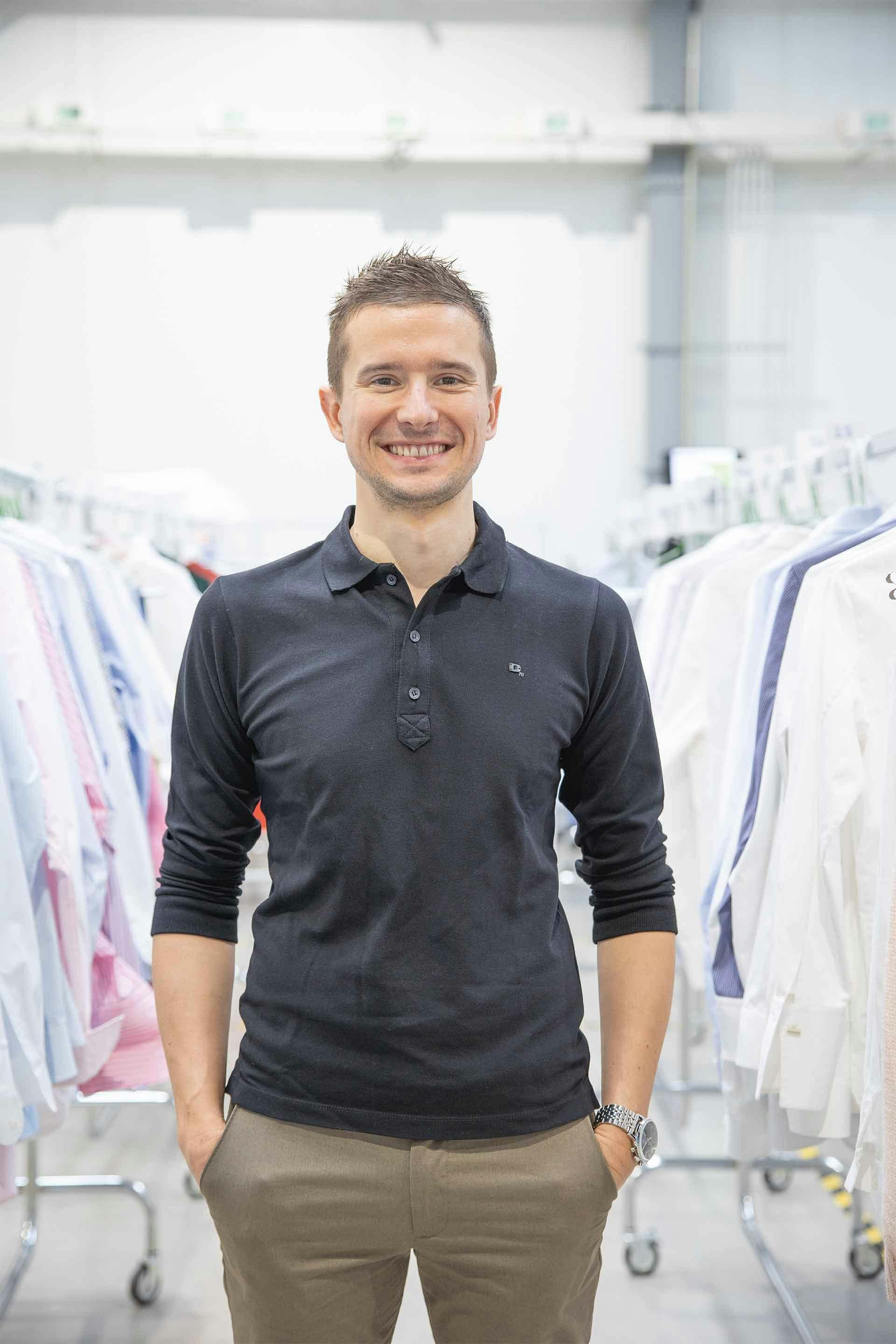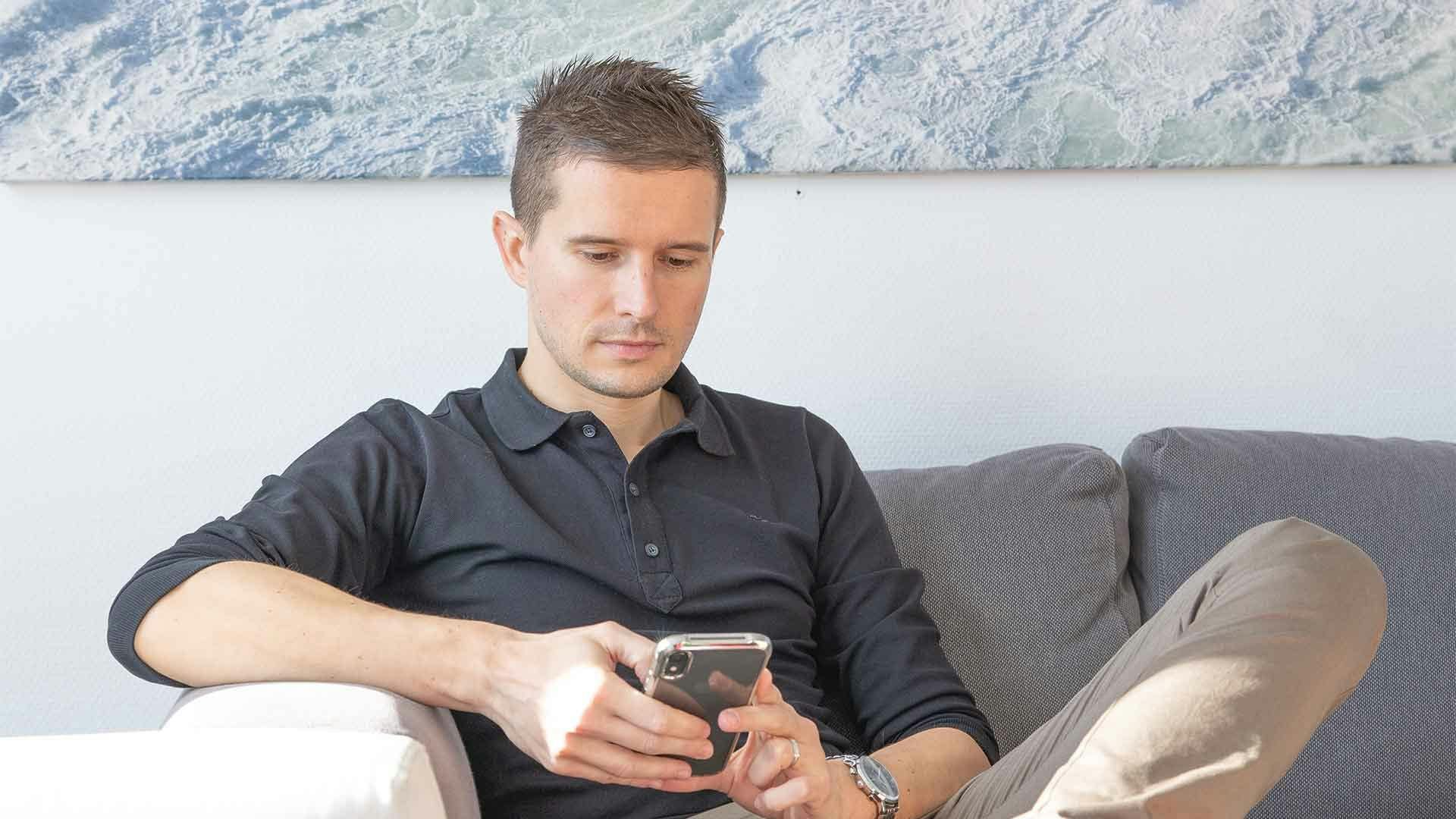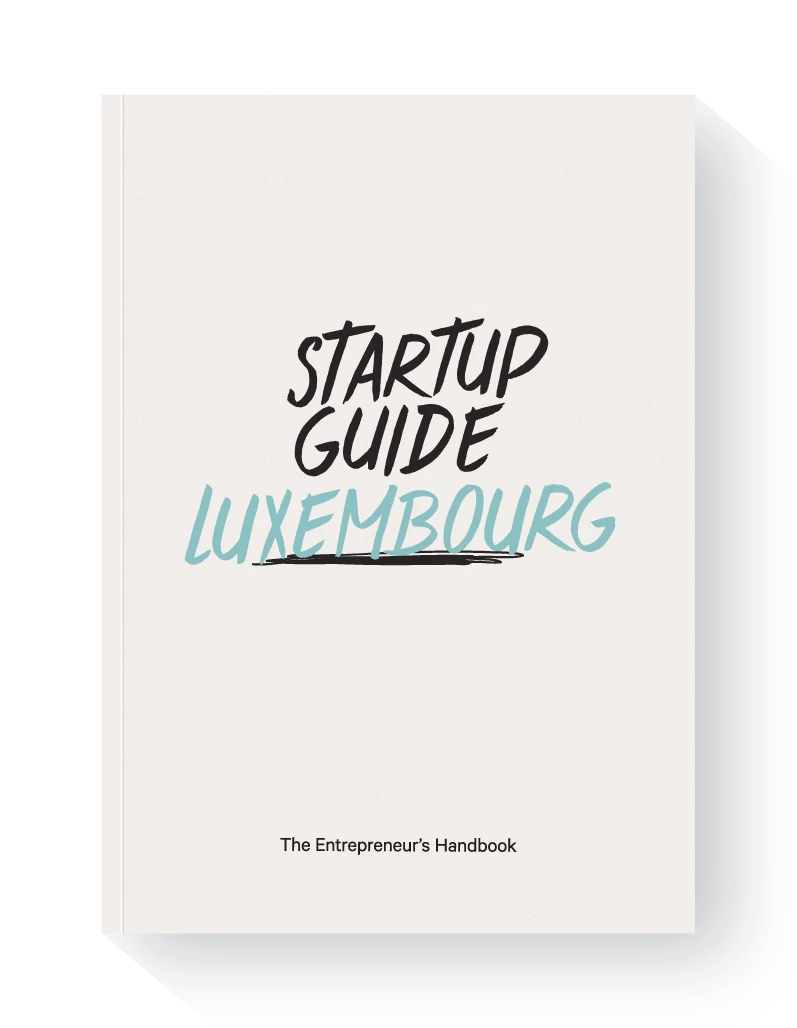Luxembourg's strong ecosystem helped Antoine Hron found Klin
tarting out in a career in finance, Antoine Hron worked for BNP Paribas before taking a role overseeing startup development at Luxinnovation, where he was a consultant to early-stage founders and helped create the Fit 4 Start accelerator program. After almost seven years there, he decided to apply the knowledge and experience he had gained to his own venture.
Klin is an environmentally friendly on-demand laundry service founded with the goal of modernizing dry cleaning and tackling pollution in the industry. It uses biodegradable solutions to reduce chemical waste and optimizes energy consumption.
Antoine shares his experience of founding Klin and his insights into the Luxembourg startup ecosystem.
How did Klin get started?
We set up in 2017 in Luxembourg. While it’s not so innovative compared to companies you could get already in London or major cities in Europe like Paris or Berlin, when we started it, there was no similar option in Luxembourg. We wanted to ease the process of ordering laundry. Historically, you had to look for a dry cleaner close to your location, drop off your stuff and then wait almost a week to pick it up.
There are only one or two big actors. There’s no competition, they are the only ones on the market and they’re in quite high demand. They struggle to do their job correctly so that’s why there was a good opportunity to set up our business. We wanted to make it easier, we wanted to make it quicker and we wanted to bring in all the new elements we could, such as digitalization and environmentalism, to this legacy industry. We decided to offer on-demand laundry that you could order directly from your mobile.
What motivated you to start your own company?
I spent seven years working for Luxinnovation, which is the national agency for innovation in Luxembourg. After consulting to startups for so long, I definitely developed this desire to set up my own business. At the time, I was not looking directly at dry cleaning, which is an industry I don’t have any personal links with, but I was looking for an industry that would benefit the most from digitalization and ecological impact. While I was looking at existing companies that could be acquired and modified, one of my former clients approached me and told me about a friend of theirs, my cofounder Pit Zens, who might be willing to collaborate.
The good thing was that he was already way ahead on the elements of the business that I didn’t find so interesting – everything concerning the machines to authorization from the government. I was more interested in the commercial activities and the strategy and so on, so finally we met up and decided to work together.

Antoine Hron. Photo: Vincent Remy
What are the challenges of introducing new things to a legacy industry?
There are a lot of challenges, both internal and external. We didn’t get any legacy backing, so all the operational skills are coming from our employees. They quickly became one of our main assets. We wanted good, well-paid employees who would ensure a certain quality in our services. Those kind of experienced people are generally middle aged, in their forties or fifties, and they’re not as attracted to digital technologies, so it was a big challenge for us to push them to use our new system.
A lot of the external tools that we use were already on the market, and our job was to integrate everything and build in some consistency. For example, we work with a British company called Spot, which deals with our point-of-sale software.
Why were you attracted to working in the startup ecosystem, rather than sticking with a big company?
I was always attracted to running my own company. Being directly involved in the startup system in Luxembourg for so many years just reinforced this. But I would say that it was a challenging path. Luxinnovation is a public–private entity, but most people ignore the private element and there was a lot of questioning around whether a public agency is able to give tips and consultancy to startup founders. For me, I saw that as a challenge: to be able to say I did this for seven years and I will prove to you that I’m able to do it myself by setting up my own company.
What kind of support did you get from that ecosystem?
It’s a bit of a tricky question given my legacy. As I worked for Luxinnovation for seven years, I was already aware of the subsidies and the support and so on that I could access. To be honest, as an entrepreneur working on industrial activities, the kind of support you are looking for is definitely financial. I was aware of the different things I could access and I did it by myself.
My point is not that Luxinnovation and our partnership was not important in a daily way, but as I was working there, I didn’t ask them for a lot of support. I met them because it was necessary during the process of submitting my applications for approval and they did the job well. Knowing the different tools available and organizations such as Technoport definitely helped us facilitate things early on.
The city is great for entrepreneurs but it depends on what kind of service you can offer because, at the end of the day, Luxembourg is a very small place.
Did Luxembourg’s work culture impact your decision to move here?
Not at all. I’ve always worked in Luxembourg – I’ve been here nearly fifteen years – but I’m originally from the southeast of France. At the end of my studies at business school, I had the option to take my first job in the banking industry in Luxembourg, and I also had personal reasons to move. The banking industry here is really strongly linked to back-office activities, which are definitely not the most interesting aspects of the sector, so that’s why I switched to working with startups and consultancies and finally to starting my own companies.
The thing I like about Luxembourg is that it’s like a blank slate. There are a lot of opportunities, and although there are a lot of things missing from the city, I’m attracted to the opportunities and it’s a great place to meet entrepreneurs who share the same mindset as me.
How was that conducive to the kind of work you wanted to do and finding the people you wanted to work with?
In Luxembourg, there are fewer things for young people to do than in Paris or Berlin but there are tons of work opportunities. The city is great for entrepreneurs but it depends on what kind of service you can offer because, at the end of the day, Luxembourg is a very small place.
Generally, the big European actors are not looking to go to Luxembourg because the internal market is not important enough. However, if you are starting from scratch, that small internal market can be advantageous because you can get really quick feedback from the market and you could really quickly pivot to adapt your product or your services.
So while it’s great for founders, I have to be really transparent in saying that it’s really far from big cities such as London, Paris or Berlin, so you can’t have the same expectations. Even though it’s a capital city, it’s a small city, so at the end of the day it really depends on the industry you’re involved in.
“You need to be resilient. Your idea almost certainly won’t work immediately, so you can’t give up.”
No content
What advice would you give to early-stage founders?
You need to be resilient. Your idea almost certainly won’t work immediately, so you can’t give up. You need to continue with your own ideas and in the meantime be open to advice and ideas from external partners. Most of all, you need to be passionate. Even if you don’t have the most innovative idea in the ecosystem, which was the case for us, if you are passionate in what you do, you can easily manage to convince your counterparts. I’m passionate when I’m selling the idea of Klin and I’m certain that was part of our partners’ decision to work with us rather than our competitors.
What is the best decision you have made in your career?
The one I have in mind is simply the fact that I set up my company. I’m one hundred percent sure that I made the right decision because even if it doesn’t work – I don’t know what the future will bring – for me personally it was probably my best decision because I’m totally in line with myself.
A version of this interview is included in Startup Guide Luxembourg. Order your copy now to learn more about Luxembourg's startup ecosystem.
Written by Ciaran Daly.
Repackaged by Hazel Boydell.

